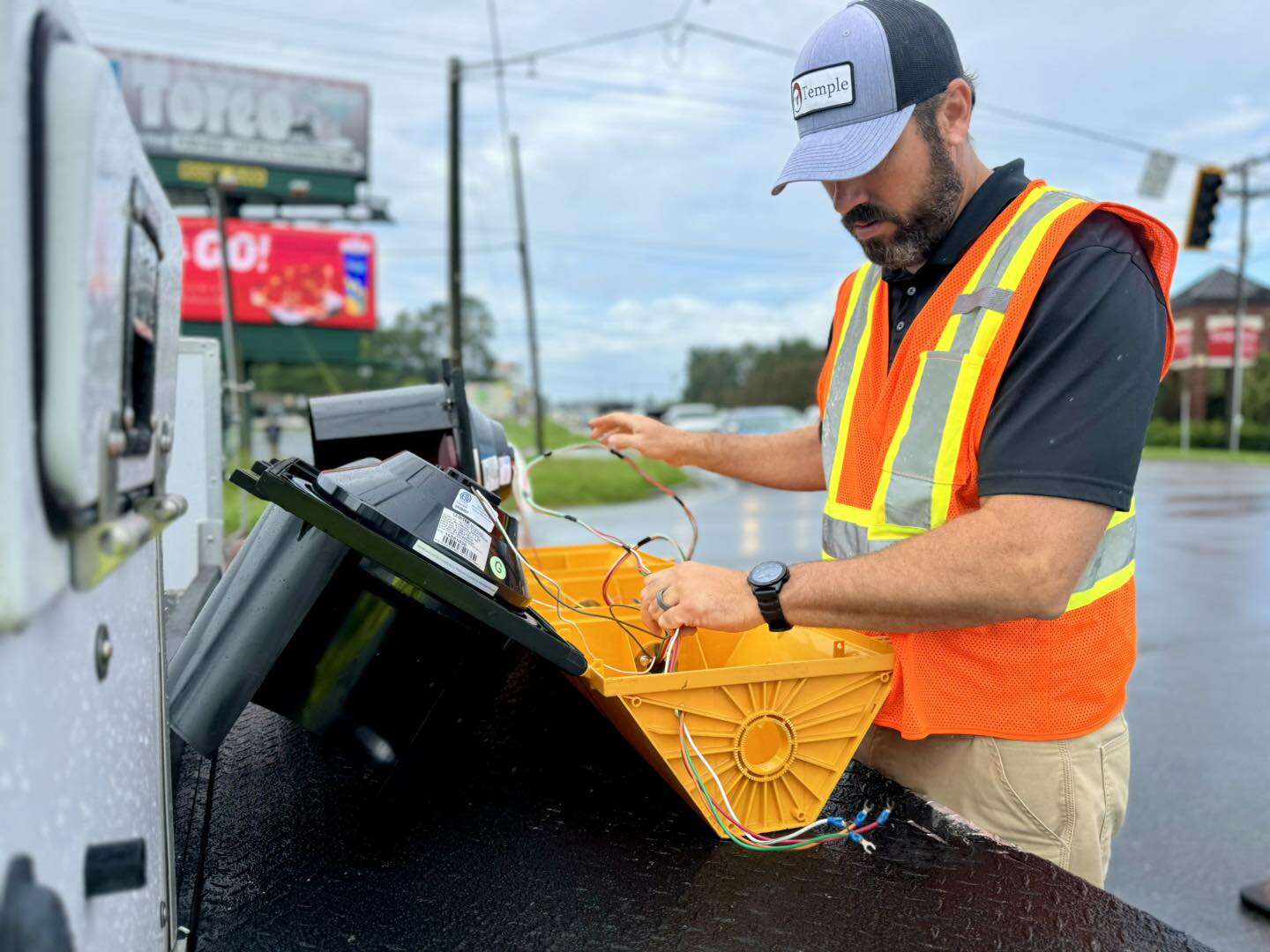Houston shares legislative update
Published 9:00 am Thursday, March 15, 2018

- Submitted photo: Tift County Commissioner Melissa Hughes stops by the House of Representatives during the ACCG Conference.
During the week of week of Crossover Day, many bills were voted on and passed out of the House of Representatives. Some of this legislation was recommended by the Rural Development Council. These bills, and others, are important to people in Berrien, Cook and Tift County.
House Bill 951 incorporates recommendations from the Georgia House Rural Development Council pertaining to the Center for Rural Prosperity and Innovation and creates the Center for Rural Prosperity and Innovation to be located within an institution of the University System of Georgia which awards bachelor of science degrees in rural community development.
Several recommendations from the Georgia House Rural Development Council pertaining to broadband expansion are implemented through House Bill 887. This bill allows municipal corporations and electric membership corporations to provide broadband services.
It also establishes the Georgia Emergency Management and Homeland Security Agency as the home of broadband. GEMA is responsible for creating and administering two programs, a broadband ready community certification, and a grant program. It also modifies pole attachment rates in rural counties and unserved areas.
Judicial
House Bill 673 establishes a hands-free driving law in Georgia. This bill would prohibit drivers from holding, supporting or reaching for a wireless telecommunication device or a stand-alone electronic device while operating a vehicle. It would also ban drivers from texting, browsing the internet or watching or recording videos. However, drivers would be permitted to use GPS navigation and voice-to-text features on their devices.
Anyone convicted of violating this proposed law would be fined and charged with a misdemeanor. Moreover, first-time offenders would receive a two-point deduction on their driver’s licenses, and the bill would establish a staggered point deduction system for repeat offenders.
This hands-free law would not apply while a vehicle is lawfully parked, while reporting an emergency or a hazardous road condition or to utility service providers, law-enforcement officers, or first responders operating within the scope of their employment.
This measure intends to decrease automobile accidents, injuries and fatalities and would make our roadways safer for all Georgia commuters.
House Bill 605, an update of Georgia’s Hidden Predator Act, would hold negligent individuals or entities who conceal child abuse accountable for those actions. It would extend the statute of limitations for childhood sexual abuse cases from age 23 to age 38.
Also, House Bill 605 would lengthen the discovery time period from two years to four years for a victim who experiences psychological or emotional problems as a result of child sexual abuse to report such abuse.
C.J.’s Law, or House Bill 765, punishes those who, without malice aforethought, leave the scene of a vehicular accident resulting in serious bodily injury. This crime is punished as a felony, with a term of imprisonment for not less than one year nor more than 10 years.
Foster Care
House Bill 927 requires additional information to be given to the caregiver of a foster child within 15 days of the placement of said child to include recommendations from the child’s most recent physical and dental examinations, recommendations from the most recent developmental assessment and health insurance information.
Immediately at the time of placement, the caregiver is to receive an explanation for the process of school enrollment, financial assistance available, a description of reasonable and prudent parenting, and contact information for a county or district department of family and children services.
Education
The compulsory attendance of students whose parent or guardian currently or previously served in the armed forces or reserves is changed by House Bill 718, which allows schools to grant excused absences for students who attend a military affairs-sponsored event.
Students are allowed five absences per year, for a maximum of two years.
Insurance
House Bill 878 allows insurers and/or insurance agencies to let their insureds cancel their policy over the telephone.
House Bill 818 allows health-care providers to choose the method of reimbursement from insurers.
Health
To prevent injuries and deaths of abandoned newborn children, House Bill 513 allows the Department of Community Health to promulgate rules for a sign to be developed and posted at any medical facility to inform the general public that the facility is an authorized place to leave a newborn child.
House Bill 764 would add two additional illnesses, post-traumatic stress disorder and intractable pain, to the current list of qualifying medical conditions to allow those patients to be treated with low THC oil.
Property
When a tenant or the tenant’s minor child is a victim of family violence, the tenant is allowed to terminate a residential rental agreement without being subject to penalties under House Bill 834.
House Bill 374 lowers the valuation requirement for an appeal of a property tax bill of a non-homestead property to be before a hearing officer with an appeal to the superior court. The valuation requirement decreases from a fair market value of $750,000 to a fair market value of $500,000. The county boards of equalization must notify the taxpayer whether there are any corrections or changes within 180 days.
Supporting Georgia’s Deaf and Hard of Hearing:
From Language Acquisition to Literacy Achievement
I presented House Bill 844 to the House of Representatives. This bill, which passed, is addressing a public health and education crisis for children in this state who are deaf and hard of hearing.
Approximately 3 percent of Georgia’s children in special education whose primary disability is deaf or hard of hearing are proficient readers. This legislation aims to help these children by identifying the remaining student population that is deaf and hard of hearing and operationalizes and replicates successful learning trajectories. By implementing an individualized Birth to Literacy Plan, more of Georgia’s children will learn to read.
This legislation also ensures that Georgia has a system in place that supports parents’ understanding of the primacy of language, respects parents’ language choices, builds parents’ capacity to be their child’s “conversational partner” and advocate from birth, tracks each child’s progress, and, based on that tracking, provides each child with what he or she needs to be a proficient reader.
As the sponsor of this bill, I thank all of the parents, teachers and other professionals who spent years developing this legislation. I also thanks my colleagues in the House for voting to support Georgia’s deaf and hard of hearing children.
It is an honor and a privilege to serve as your representative to District 170. If you, or anyone you know, need assistance with an issue, please do not hesitate to call my office. Remember, I am here to serve you.
Penny Houston, D-170, Georgia state representative.





